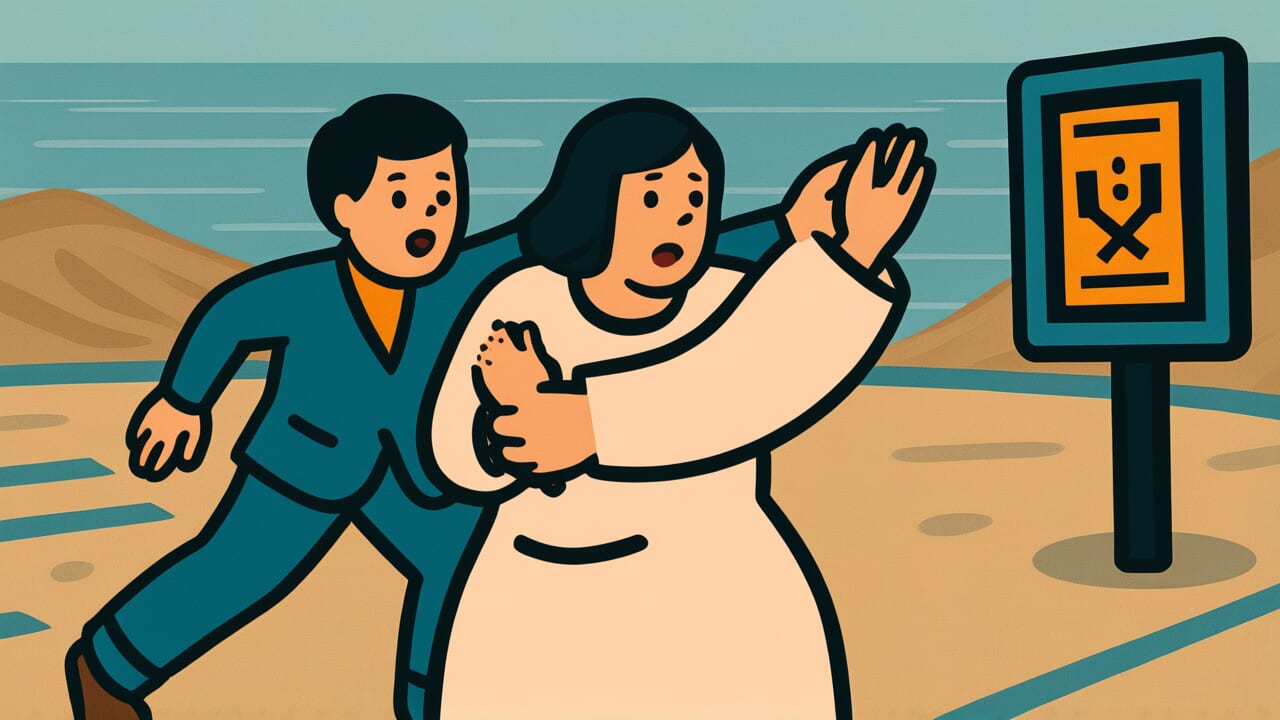How to Read “Living apart is harder than parting by death”
Shini wakare yori iki wakare
Meaning of “Living apart is harder than parting by death”
This proverb reveals a truth about human psychology. Being separated from someone while they’re still alive is more painful than losing them to death.
When a loved one dies, the grief is deep. But the fact that they’re no longer in this world cannot be changed. Over time, you have no choice but to accept it.
However, living apart is different. You know the person is alive somewhere, but you cannot see them. This creates endless suffering.
Your heart swings between “Maybe I could see them” and “But I can’t.” This uncertainty never ends.
This expression describes the feelings of parents and children, married couples, or lovers who are forced apart by circumstances beyond their control.
Even today, it captures the pain of people separated from their families for various reasons. Its meaning remains powerful and relevant.
Origin and Etymology
No one knows exactly when this proverb first appeared in writing. However, people were already using it during the Edo period.
The phrase compares two contrasting forms of separation. “Parting by death” versus “living apart.”
Death is an unavoidable fate. In some ways, you can accept it. When someone is no longer in this world, there’s no question about why you cannot see them.
But living apart means the person exists somewhere in the same world. Yet you still cannot meet them.
This expression likely emerged from social conditions in the Edo period. The class system, service obligations, and marriages to distant places forced families apart.
Parents separated from children, husbands from wives. Relationships that should have stayed together were torn apart. This was a serious problem for people of that time.
The contradiction of “alive but unreachable” creates deep mental anguish. Our ancestors understood this psychological pain with sharp insight.
This proverb contains profound wisdom about the essence of human psychology.
Usage Examples
- That child has been living apart from her mother since her father remarried and took custody. As they say, living apart is harder than parting by death. Even knowing they cannot meet, she cannot give up hope.
- I heard about siblings separated by war who searched for each other for decades. When I hear such stories, I think how true it is that living apart is harder than parting by death.
Universal Wisdom
The human heart has a strange quality. Things that haven’t ended occupy our minds more than things that are completely finished. This proverb reveals exactly that aspect of human psychology.
Death is an absolute ending. No matter how painful, it becomes a reality you must eventually accept.
People face the fact that their loved one is no longer in this world. Through their grief, they gradually move forward.
But living apart has no such closure. The fact that the person is alive keeps a small flame of hope burning in your heart.
“Maybe I’ll meet them somewhere.” “What are they doing now?” “Do they remember me?” These thoughts cross your mind every day.
This endless questioning is the essence of the pain of living apart. Because there is hope, you cannot completely give up.
Because you cannot give up, the suffering continues.
Our ancestors captured this contradictory movement of the heart beautifully in words. Humans are creatures who need endings.
When something ends, we can move toward a new beginning. But living apart has no ending. The heart remains suspended in midair forever.
This proverb quietly teaches us that the human heart is an existence that seeks “closure.”
When AI Hears This
Parting by death confirms the other person’s state as “no longer here.” But living apart creates a permanent uncertain state of “might be alive somewhere.” This resembles quantum superposition.
In quantum mechanics, particles hold multiple states simultaneously until observed. Just as Schrödinger’s cat contains both “living cat” and “dead cat,” a person you’re living apart from simultaneously contains “person living happily” and “person suffering.”
The human brain struggles to process this superposition state.
Neuroscience research shows that uncertain situations trigger stronger stress responses than certain bad outcomes. Even bad news, once “confirmed,” allows the brain to switch to coping mode.
But with living apart, no observation occurs (no reunion or definite information). The wave function never collapses. Countless possibilities about the person continue running simultaneously in your head.
What makes it worse is that human imagination keeps attempting observation on its own. “Are they smiling now?” “Maybe they’re in trouble?”
The brain endlessly repeats virtual observations. But nothing actually gets confirmed, so energy just keeps getting consumed.
Like a quantum computer processing vast calculations simultaneously, the brain processes infinite possibilities and becomes exhausted. This is the essential suffering of living apart.
Lessons for Today
This proverb teaches modern people the importance of “closure” in life. Today, social media lets us easily connect with people we once parted from.
But this also means it has become harder to completely end relationships.
Many people keep checking an ex-lover’s social media. They wonder about friends they’ve grown distant from. They drag out past relationships.
This is a modern version of “living apart.” Because the person is alive and their information is accessible, you cannot completely forget them.
What matters is having the courage to create your own “closure.” If a relationship has ended, accept it and move forward.
If you’ve decided not to contact someone, honor that decision. Continuing in an ambiguous state only makes you suffer.
In life, there are times when you must let go. This proverb teaches us how much endless longing can make a person suffer.
That’s why you should have the courage to create closure by your own will and take a new step forward. That is the path to freeing yourself.



Comments